Now I wish I still had all those magazines, but when you are a teenager, you don't think of stuff like that. I did some more reading and rolled with it.
This exerpt is from "Wiki"
The Second Boer War (11 October 1899 – 31 May 1902) was fought between the British Empire and two Boer states, the South African Republic (Republic of Transvaal) and the Orange Free State, over the Empire's influence in South Africa. It is also known variously as the Boer War, Anglo-Boer War, South African War or Anglo-Boer South African War. Initial Boer attacks were successful, and although British reinforcements later reversed these, the war continued for years with Boer guerrilla warfare, until harsh British counter-measures brought them to terms.
The war started with the British overconfident and under-prepared.[11] The Boers were very well armed and struck first, besieging Ladysmith, Kimberley, and Mafeking in early 1900, and winning important battles at Colenso, Magersfontein and Stormberg. Staggered, the British brought in large numbers of soldiers and fought back. General Redvers Buller was replaced by Lord Roberts and Lord Kitchener. They relieved the three besieged cities, and invaded the two Boer republics in late 1900. The onward marches of the British Army were so overwhelming that the Boers did not fight staged battles in defence of their homeland. The British quickly seized control of all of the Orange Free State and Transvaal, as the civilian leadership went into hiding or exile. In conventional terms, the war was over. The British officially annexed the two countries in 1900, and called a "khaki election" to give the government another six years of power in London. British military efforts were aided by Cape Colony, the Colony of Natal and some native African allies, and further supported by volunteers from the British Empire, including Southern Africa, the Australian colonies, Canada, India and New Zealand. All other nations were neutral, but public opinion in them was largely hostile to the British.Inside the UK and its Empire there also was significant opposition to the Second Boer War.
The Boers refused to surrender. They reverted to guerrilla warfare under new generals Louis Botha, Jan Smuts, Christiaan de Wet and Koos de la Rey. Two more years of surprise attacks and quick escapes followed. As guerrillas without uniforms, the Boer fighters easily blended into the farmlands, which provided hiding places, supplies, and horses. The UK's solution was to set up complex nets of block houses, strong points, and barbed wire fences, partitioning off the entire conquered territory. The civilian farmers were relocated into concentration camps, where very large proportions died of disease,[citation needed] especially the children, who mostly lacked immunities. Then British mounted infantry units systematically tracked down the highly mobile Boer guerrilla units. The battles at this stage were small operations with few combat casualties (most of the dead were victims of disease). The war ended in surrender and British terms with the Treaty of Vereeniging in May 1902. The British successfully won over the Boer leaders, who now gave full support to the new political system. Both former republics were incorporated into the Union of South Africa in 1910, which Boers controlled.
Boer Militia at Spion Kop
“The Boers are not like the Sudanese, who stood up to a fair fight. They are always running away on their little ponies.”– General Kitchener, 1900
The Second Boer War (1899-1902) was a grueling campaign which the British won despite their commanders rather than because of them. British commanders were in general of a poor quality in the war. Faced with Boer guerrillas fighting a careful, tenacious campaign for freedom from Britain, the forces of the empire would have struggled at first even under forward-looking and capable officers. Instead, they were repeatedly led by men of stunning ineptitude, who cost many brave men their lives and probably prolonged the war.
1. General Sir Redvers “Reverse” Buller
Once an excellent major, General Buller had been promoted far beyond his abilities. He had also been away from the action, having not commanded any troops between 1887 and 1899. He was put in charge of the British expeditionary force to put down the Boers.With little grasp of his mission, Buller failed to direct the officers beneath him, even promoting the terrible General Warren. Buller’s undoing came in December 1899 at the Battle of Colenso. There he failed to identify where the Boer troops were, despite hurling artillery shells against the hillsides to try to drive them out. His advancing columns were devastated by the dispersed Boer riflemen. In this action, some field guns were abandoned.
Becoming obsessed with retrieving a set of field guns, Buller lost track of the big picture. By the time he gave in and retreated at eleven in the morning he had lost 1,139 men, compared with around 40 casualties on the Boer side.
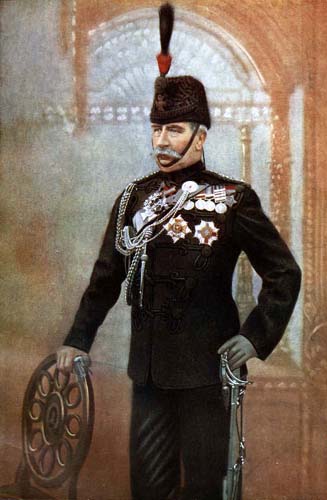
His setbacks earned the general the nickname “Reverse Buller” among his men
2. General William “Backacher” Gatacre
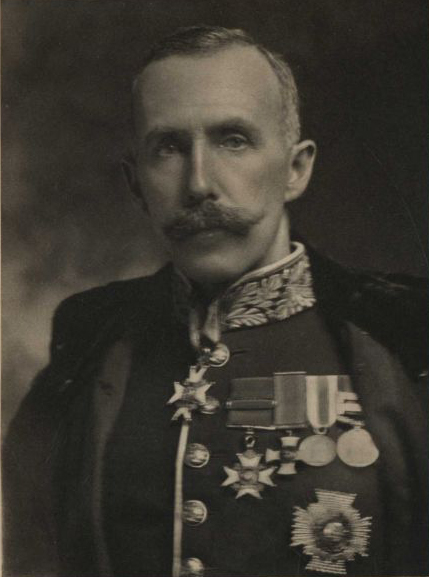
Gatacre’s most notable disaster was when he tried to launch a surprise raid to seize the Stormberg railway junction. Taking 2,700 men on a hard night march, he failed to bring the one man who knew the terrain, leading his troops to become hopelessly lost.
At dawn, Boer soldiers found themselves looking down a sheer cliff face at the lost British below. They opened fire, and those British soldiers brave enough to try climbing the rock face soon found it impossible. As his men fled, Gatacre ordered a retreat that descended into chaos. 600 men were left behind, not having been given the fallback order. Surrounded by the Boers, these men surrendered, while Gatacre ran off to lick his wounds.
3. General Lord Methuen
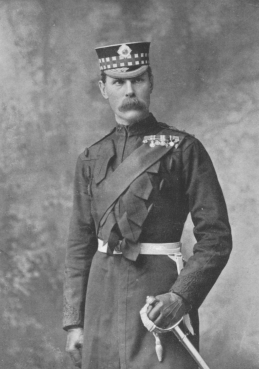
Believing he had shaken the defenders, Methuen ordered an advance by the Black Watch through a moonless night of pouring rain. As dawn broke, the soaked Scots found themselves marching in close formation towards the bottom of the hill. From 400 yards away the Boers opened fire.
Most of the Highlanders leapt for the inadequate cover of bushes and anthills. The heat of the African sun and the bites of the insects added to their misery as they lay trapped. When the Light Infantry panicked and ran many of them were shot down from behind.
Of 3,500 men who advanced, 902 were killed or wounded.
4. General Sir Charles Warren
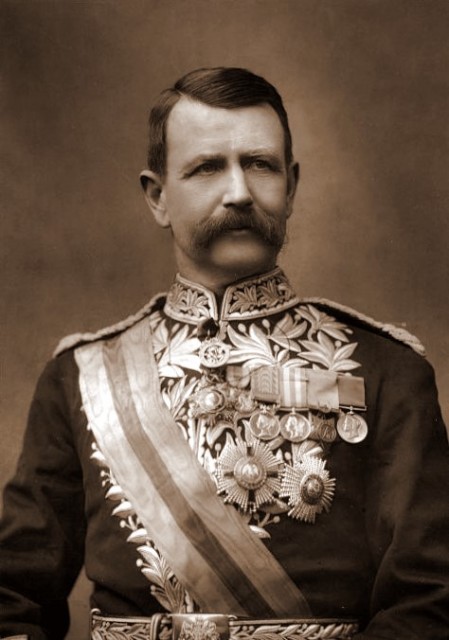
Buller made Warren commander at the Battle of Spion Kop. Neither Buller nor Warren ordered proper reconnaissance of the hill they were planning to attack. With little purpose, plan or information, Warren ordered General Woodgate – a man even Buller considered stupid – to lead an advance. He gave Woodgate neither machine guns nor a telegraph team to keep in touch.
Ill-equipped and ill-informed, Woodgate and his men fought their way to what they thought was the top of the hill, but was actually a plateau mid-way up. The Boers took the ridges and rained down death from three sides upon the British, who could not even dig in on the rocky ground.
It was nine hours before Warren thought to send reinforcements, by which time Woodgate was dead and his men in retreat. When a war correspondent named Winston Churchill had urged Warren to act earlier in the day, Warren had ordered him arrested in a fit of rage.
5. Colonel Charles Long
Buller’s failings at Colenso were compounded by his subordinates below him, including Colonel Long.Long was an old-school officer who believed that “the only way to smash those beggars is to rush in at ‘em”. Ordered to keep his horse artillery at least two and a half miles back, Long instead ordered them to gallop forwards, leaving behind the infantry meant to protect them. A thousand yards from the Tugela River, Long set up his guns in what he considered a pleasingly straight line and began firing at the Boers across the river.
This close, Long’s men were defenceless in the face of a thousand Boer rifles. After an hour’s firing, with no ammunition left and no cover to hide behind, they were forced to retreat, leaving behind the guns, which were later used by the Boers against the British.
6. Major-General Hart
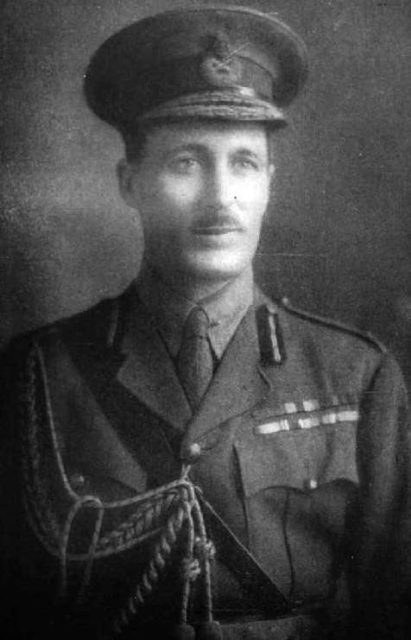
Of 1,139 British casualties at Colenso, 532 – nearly half – were from Hart’s brigade.
The Boer War turned into a bloody conflict. If the British Army had been properly led, then it would have been shorter and far less bloody.
Sources:
Geoffrey Regan (1991), The Guinness Book of Military Blunders.


Well-written indeed. And on behalf of my ancestors...OVS forever!!
ReplyDeleteHey Murphy;
DeleteThank you and the lessons learned through that war and didn't learn showed up again in WWI.
The Brits certainly have had a longstanding tradition of being " Lions led by Donkeys"!
ReplyDeleteAn inbred officer class will do that to you. Very nice post indeed.
Hey Aaron;
DeleteI noticed that...The British Soldier were stalwart and determined, but their officers were Hit and Miss, I keep thinking of the battle of Singapore where thanks to the incompetence of their officers, 80,000 British soldiers were marched into POW camps of the Japanese and many died there because of the malaise of their officers.
Aaron beat me to it... Their tactics 'sucked' to put it mildly, and they refused to learn from it.
ReplyDeleteHey Old NFO;
DeleteLike I commented on Aarons post, the British Soldier is stalwart and determined, their officer corp have been either brilliant or inept. The lessons learned or not learned showed up in WWI. And for that matter from the American Civil War, and the European armies were still hung up on linear tactics.
Awesome sauce post! I have to +1 on Aaron. Garbage in, garbage out.
ReplyDelete